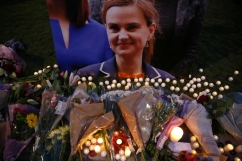
Religious causes received the highest average donations – £49 – of all types of charities in 2015.
They also account for 13 per cent of all charitable donations, new research has found.
The Charities Aid Foundation found [CAF] found that over 65-year-olds were almost three times as likely to report donating to religious causes as 16-24s (17 per cent versus 6 per cent).
Meanwhile, the number of faith-based charities continues to rise as it has over the past ten years, according to research by New Philanthropy Capital.
The 43,352 faith-based charities in England and Wales represent 27 per cent of all charities and receive 23 per cent (£16.3 billion) of the charity sector's income. The British Religion in Numbers monthly report says that: "Despite the inroads of secularization, proportionately more faith-based than non-faith-based charities have been registered with the Charity Commission during the past 10 years, 34 per cent versus 25 per cent. Relative to their non-faith-based counterparts, faith-based charities are especially active in the fields of overseas aid, human rights, and anti-poverty."
Donating money to charity was at its highest level in May (43 per cent) and lowest in August (35 per cent), with the May peak coinciding with the Disasters Emergency Committee's launch of its Nepal Earthquake appeal.
CAF said: "Looking by cause confirms that donations to overseas aid charities spiked that month, with 29 per cent in May making charitable donations to overseas aid/disaster relief charities compared to 18 per cent across all four waves of research. These are also higher levels than we see in previous years' May waves of research."
Other headline figures from the research show that two in three people have given to charity in the last year. The median monthly amount given by a donor in 2015 is £14, while the mean donation is £37. And one in eight people have volunteered in the last year, rising to one in four (24 per cent) among students in full-time higher education.
















